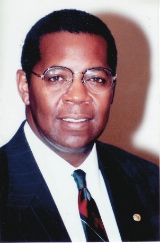
Sailing in Rough Seas
Rev. J.R. Reid
A pastor noticed that one of the church’s elderly women hadn’t been to church for a week. This woman was real faithful, and wouldn’t miss a service for anything, so he got concerned. He visited her house one evening, and knocked on the door. He heard the pitter patter of feet in the house, but no one answered. He left his business card on the door, but had written on the back of it “Rev. 3:20” which read, “Here I am! I stand at the door and knock. If anyone hears my voice and opens the door, I will come in and eat with him, and he with Me.” The following Sunday he was pleased to see this woman back in church. He told her that he had been concerned because no one answered the door the other night when he was there. She didn’t say a word, but handed him back his card. He noticed that “Rev. 3:20” was crossed out. But she had left a message for him on the back. It read “Genesis 3:10,” “He answered, “I heard you in the garden, and I was afraid because I did not have any clothes on; so I hid.”
I understand this pastor’s concern. It has been often said if women left the church, the doors would close. But the role of women in God’s plan is much bigger than church attendances. To think of women on the same level as men in the old days meant sailing in rough seas. Throughout the early history of the church women were given lesser roles. Starting with Simon Peter, the rock of the Christian church, women were not considered worthy of full discipleship. Throughout history, men dominated the Christian church. Not just the Christian church, but almost all religions. Even in the Presbyterian Church, women had trouble getting ordained and being called to pastor. In many denominations or religions, women were not even considered capable of being messengers of God.
Well, here are two things I want you to think about in considering the role of women in the life of the church today.
One, to enter the Kingdom of Heaven we must transcend male and female consideration. What do I mean? Like almost everything else in history, women have had to fight their way out of secondary roles. Woman fought for and obtained the right to vote, followed by the liberation movement that freed them from the kitchen and home and put them in the workforce, clawing their way up the social, economic and business ladder. Women now do legally everything a man does, although they are still waiting for equal pay. They fight in combat and crawl on their bellies in the mud and die in foxholes, at sea and in the air, just like men. But, spiritual equality is not about fairness in pay, home, work and play! Spiritual impartiality is about the elimination of the distinction between male and female and seeing each of us as children of God. God knows where we came from and where we are going. We should consider this when fights break out about male or female leadership and discipleship in the church.
Second, transcendence of male and female designations, allows us to come genderless before God. Spirit knows no gender! But on a practical level, women should identify more of the male in them as a way of following the head and men should identify more of the female in them as a way of following the heart. In the Gospel of Thomas, Jesus responded to Simon Peter who said, “Let Mary (the mother of Jesus) go out from among us, because women are not worthy of the life.” We can argue whether Peter said this or not but it is clear over many centuries of Christian church history, that this is what happened. Women were given subordinate roles, first in the Catholic Church, the largest Christian church in the world and later the Protestant Church. But the point is still the same, God is no respecter of persons. In the eyes of God, color or gender does not matter, love is the key that unlocks all doors leading to God and eternal life. This is an understanding that will take us all over the rough seas of life now and in the world to come.



